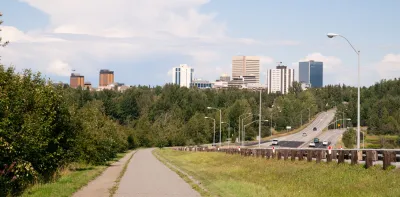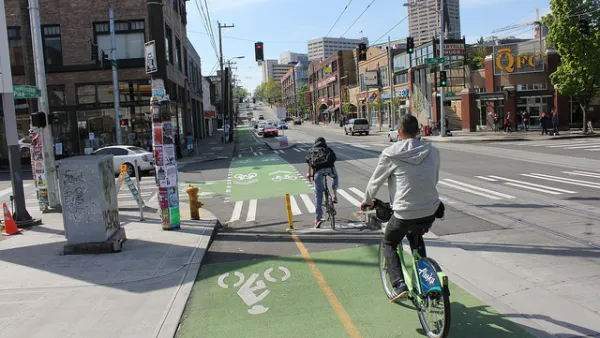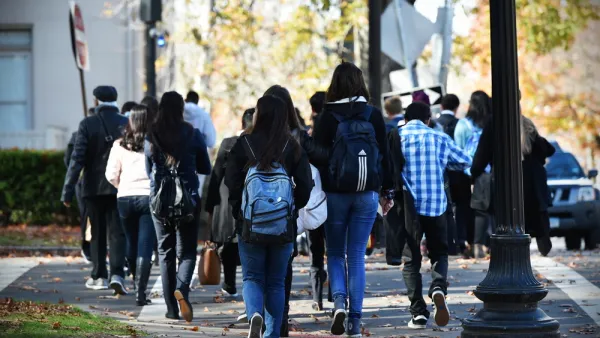Last year, Alaska returned $2.6 million of its 2013 Transportation Alternatives Program funding to the U.S. Department of Transportation due to a shortage of eligible projects to fund, despite having four years to obligate the grant money.

"The Transportation Alternatives Program, or TAP, provides federal funding for smaller-scale transportation projects such as pedestrian and bicycle facilities," reports Henry Leasia for Alaska Public Media.
[On a technical note, according to the U.S. Department of Transportation (DOT), the FAST Act "replaced the former Transportation Alternatives Program (TAP) with a set-aside of funds under the Surface Transportation Block Grant Program (STBG)" which they refer to as the 'TA Set-Aside.']
"Advocacy group Alaska Trails sent a letter to let Governor Bill Walker know that transportation funds are at risk," continues Leasia.
Each year the federal government authorizes TAP funds for every state that must be obligated to local projects within four years. Projects funded through TAP require a 20 percent state or local match.
Even though Alaska has the nation's lowest gas tax (12.25 cpg), the problem is not providing the 20 percent match, according to the Alaska Department of Transportation.
Alaska DOT spokesperson Jill Reese said that the 2013 TAP money was not obligated in time because there were not enough projects submitted from local stakeholders that were eligible for funding.
According to the Safe Routes to School National Partnership, nearly $4 million of Alaska’s TAP funding from 2014 could be returned to the federal government if it is not obligated by September 2017.
In addition to writing to Gov. Walker about the urgency of allocating the TAP funds, "Alaska Trails is working to to solidify both the Safe Routes to School Program (SRTS) and the Transportation Alternative Program (TAP) funding as a consistent funding streams for active transportation at the state level," according to its SRTS webpage.
In January, Planetizen editor James Brasuell reported that a problem with the former Transportation Alternatives Program (TAP) was that these funds, meant to fund bike/ped projects, were being regularly diverted to road projects.
FULL STORY: Alaska trail advocates warn Governor Walker of transportation funding lapses

Analysis: Cybertruck Fatality Rate Far Exceeds That of Ford Pinto
The Tesla Cybertruck was recalled seven times last year.

National Parks Layoffs Will Cause Communities to Lose Billions
Thousands of essential park workers were laid off this week, just before the busy spring break season.

Retro-silient?: America’s First “Eco-burb,” The Woodlands Turns 50
A master-planned community north of Houston offers lessons on green infrastructure and resilient design, but falls short of its founder’s lofty affordability and walkability goals.

Test News Post 1
This is a summary

Analysis: Cybertruck Fatality Rate Far Exceeds That of Ford Pinto
The Tesla Cybertruck was recalled seven times last year.

Test News Headline 46
Test for the image on the front page.
Urban Design for Planners 1: Software Tools
This six-course series explores essential urban design concepts using open source software and equips planners with the tools they need to participate fully in the urban design process.
Planning for Universal Design
Learn the tools for implementing Universal Design in planning regulations.
EMC Planning Group, Inc.
Planetizen
Planetizen
Mpact (formerly Rail~Volution)
Great Falls Development Authority, Inc.
HUDs Office of Policy Development and Research
NYU Wagner Graduate School of Public Service




























